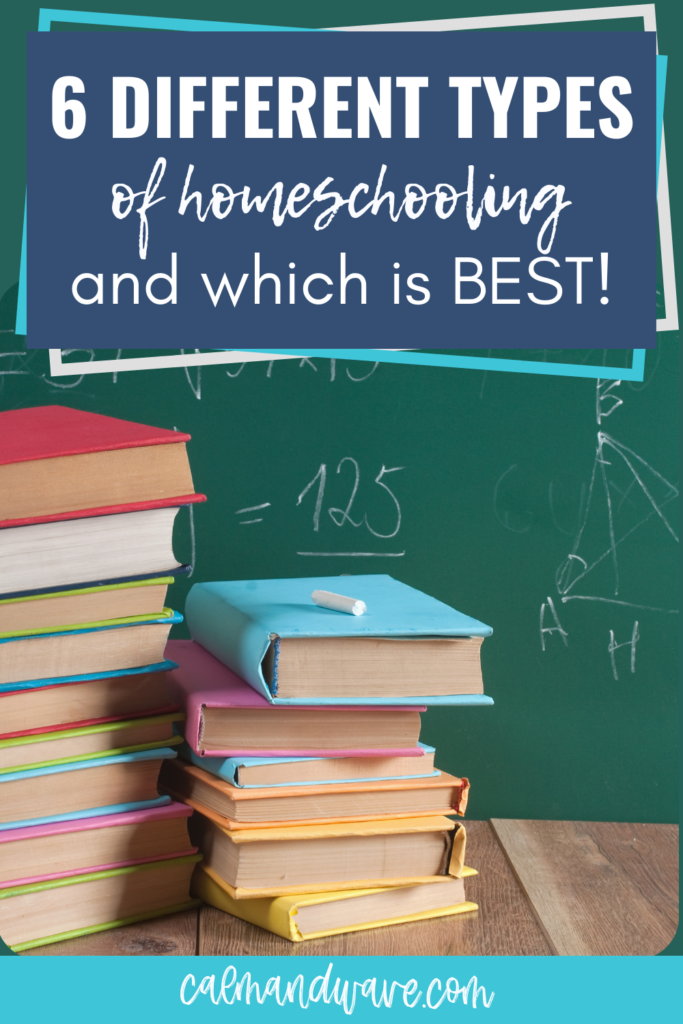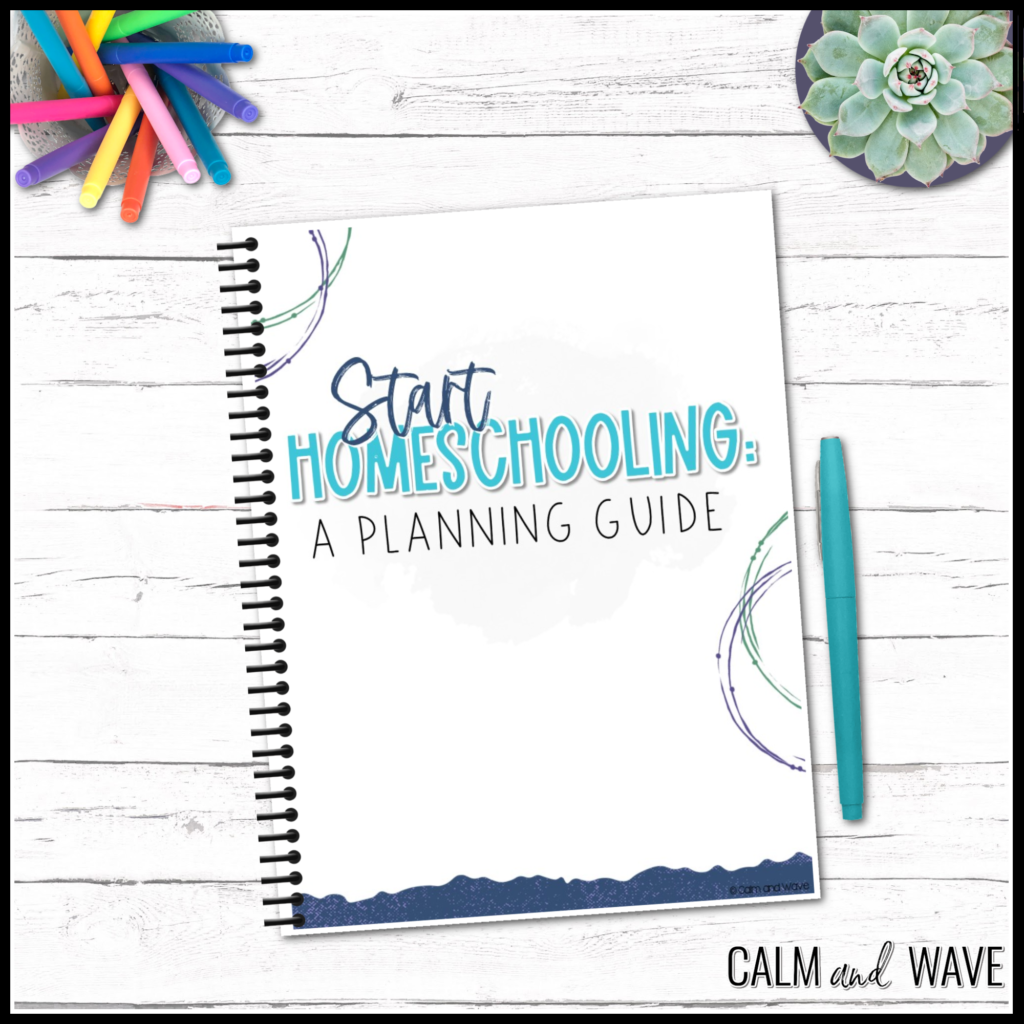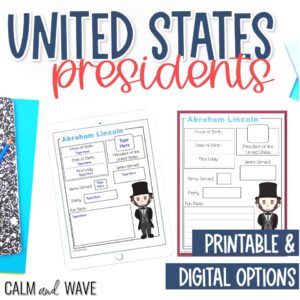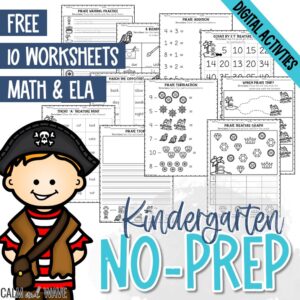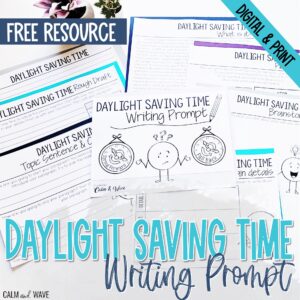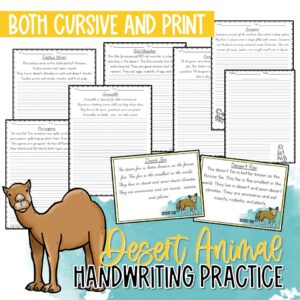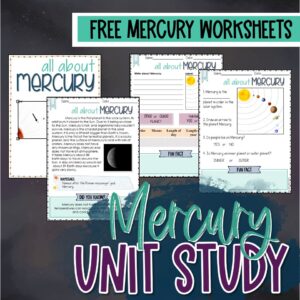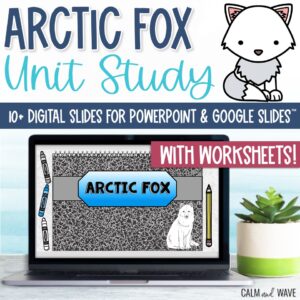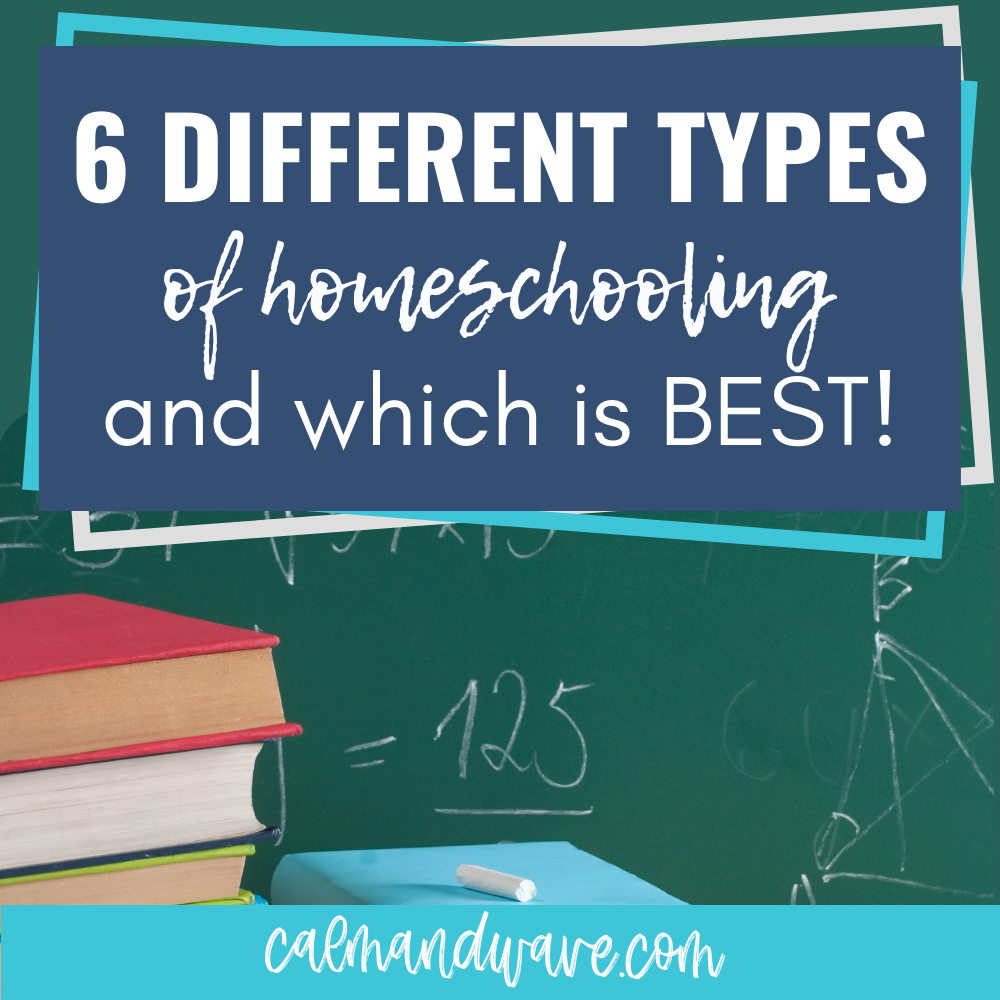
This post may contain affiliate links. This means I may earn some money should you choose to sign up for a program or make a purchase using my link. I only recommend companies or items that I love and think you will too!
So you have decided to homeschool, but how are you going to homeschool? There are several different types of homeschooling options. Knowing how you want to homeschool will help you make the right decisions for homeschool curriculum. I have compiled this list of 6 different types of homeschool curricula to help you better understand the options available to you. In alphabetical order, they are Charlotte Mason, Classical, Eclectic, School-at-home, Unit Studies, and Unschooling.
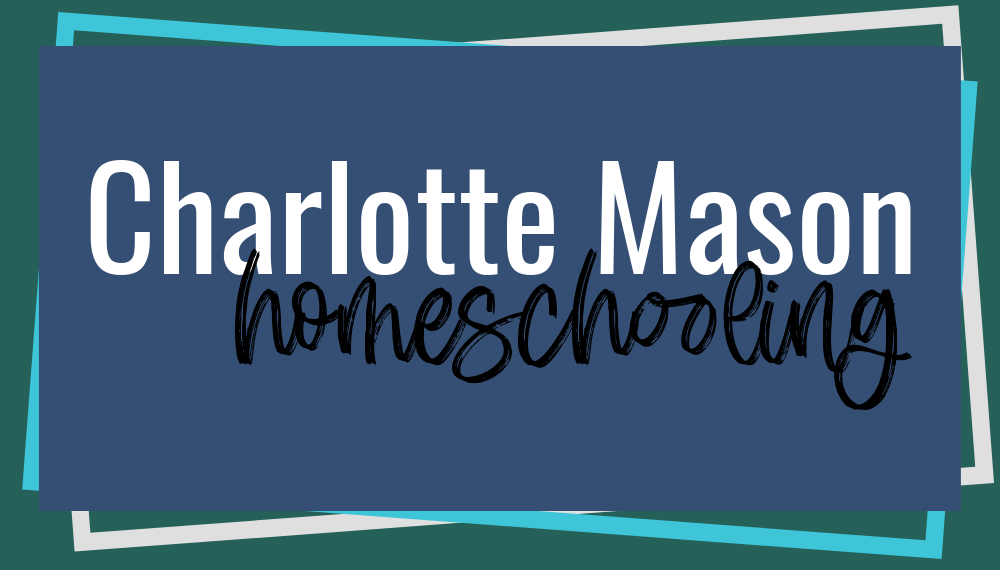
Charlotte Mason Homeschooling
You have likely heard of Charlotte Mason if you have researched any on homeschooling. Charlotte Mason was a British teacher who was born in 1842. Her philosophy would be best described using her words, “Education is an atmosphere, a discipline, a life.” She felt children were persons and should be educated as such. A Charlotte Mason-style homeschool will have lots of living books. No “dry” textbooks to from which to learn. Books of poor quality or provide no learning opportunity would be considered “twaddle” to Charlotte Mason. Students will spend time working on dictation and narration of what they have learned. Nature studies and a lot of time outdoors would also be a part of a Charlotte Mason homeschool. Lessons would be short, and instead of a bunch of repetition, emphasis is placed on perfecting each learning objective.
- Living Books
- No “twaddle”
- Dictation and Narration
- Focus on striving for perfect
- Learning from being in nature
To learn more about the Charlotte Mason method of homeschooling and a free curriculum, click here.
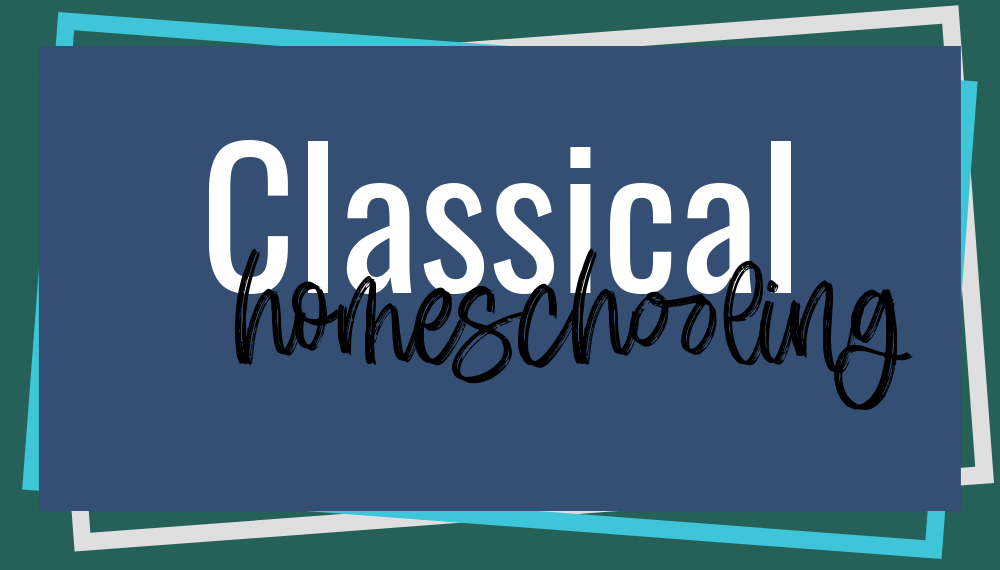
Classical
Classical education is broken down into three parts: grammar, dialectic, and rhetoric. In the grammar stage, children will learn through memorization and repetition. This stage helps students to have a firm foundation for learning. The next stage, dialectic or logic, is considered the questioning stage. Children in this stage will use what they have learned already to start asking analytical questions and practicing critical thinking. The last stage, rhetoric, further builds on the other stages. Students will focus primarily on communication and more abstract thought in this stage.
- Living books and content-rich books
- Rhythm and pattern to learning
- Systematic and structured
- Memory work
- Focus on language
More information on Classical Homeschooling can be found at Classic Academic Press or at The Well-Trained Mind.
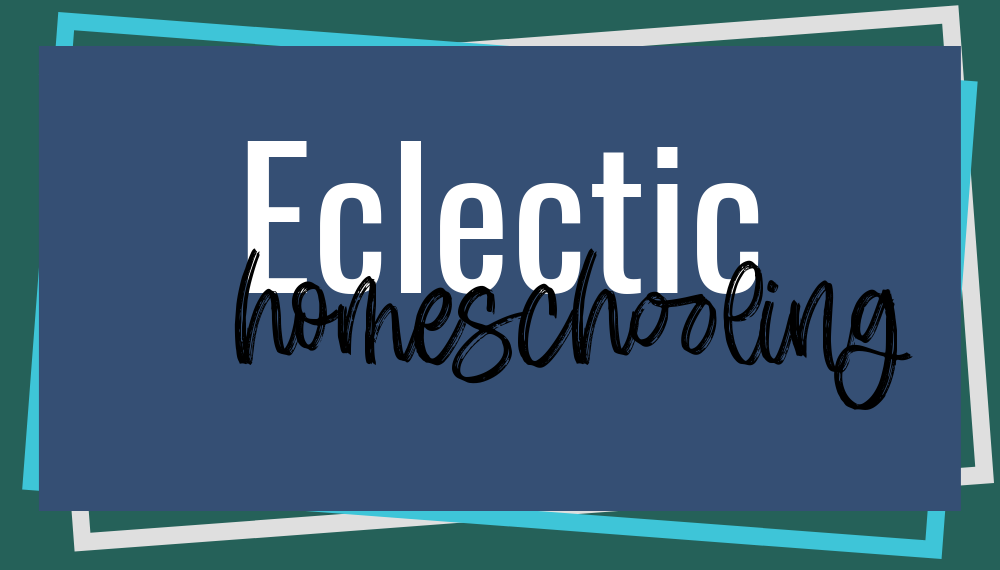
Eclectic
I like to think of eclectic homeschooling as the buffet of homeschooling. All the options are available to you, and you can pick what works best for your student. This option will look different to each homeschool family. With choosing your own curriculum, more work will be placed on you to ensure that you have all your subjects covered. This type of homeschooling would be teacher-led but could lean more towards students' interests.
- Pick and choose curriculum
- Able to suit the needs of the student
- More teacher intensive to create program
More information on Eclectic homeschooling can be found at Time4Learning.
For a planner to help you plan your eclectic homeschool, click here.
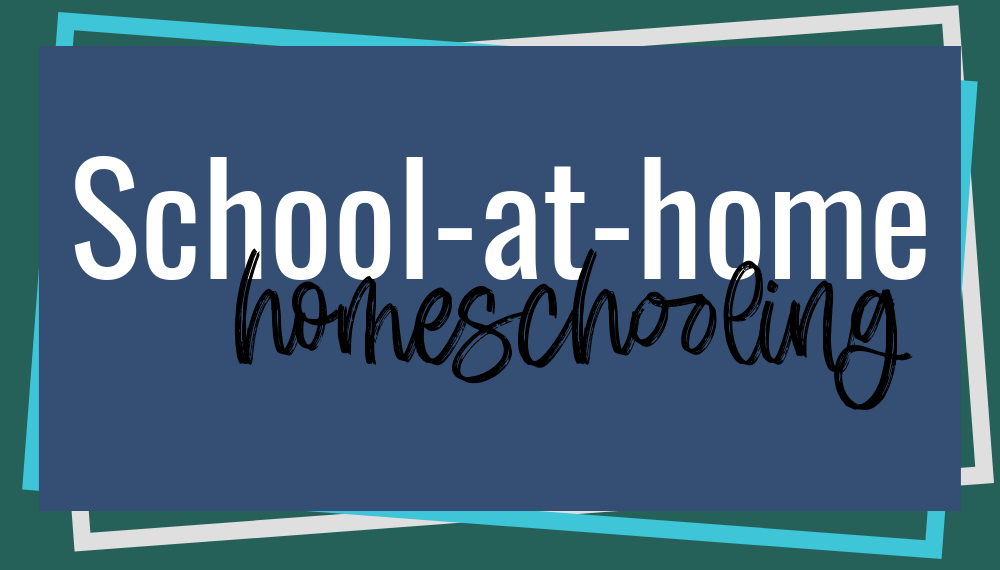
School-at-home
School-at-home homeschooling is just what it sounds like, doing school at home. This could be an online school done at home. Or it could be doing school based on the standards that would be taught if your child were going to school. This would be an excellent option for a student who thrives on the school structure or if you only plan to homeschool for a short time. This may be the least popular of the homeschool options. Most curriculum designed for the classroom provides too much busy work for a student receiving one-on-one teaching.
- Follows standards
- Scheduled
- Often busywork
- Great if you plan to continue schooling in public
- Great for busy parents if using an online option
Some options for school at home would be Abeka and K12.
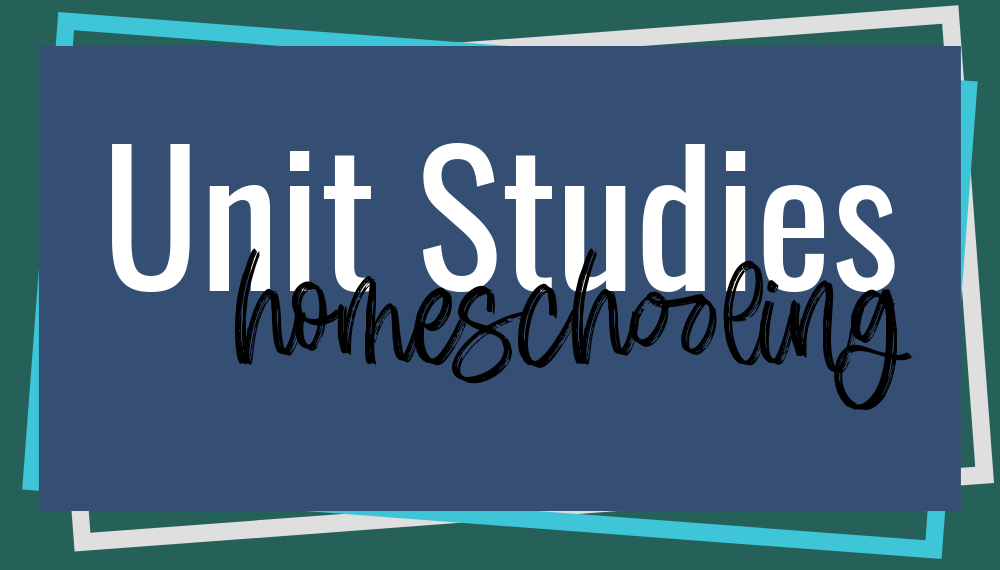
Unit Studies
Homeschooling with unit studies would focus on one theme and use it to learn all of the subjects. So, for instance, if you were learning about sharks, you would read a book about sharks for reading, write a paper on sharks for writing, practice math by comparing the weight or lengths of sharks, for history, you could read about the shark attacks of 1916 and so on. All subjects would relate back to your topic. Unit studies are fun and allow students to really dive into a topic that interests them.
- Highly interesting for students
- Cohesive theme
- Some work to make sure all subjects flow together
- May require other types of curriculum to fill in any gaps
Some options for unit studies to complement your homeschool can be found here.
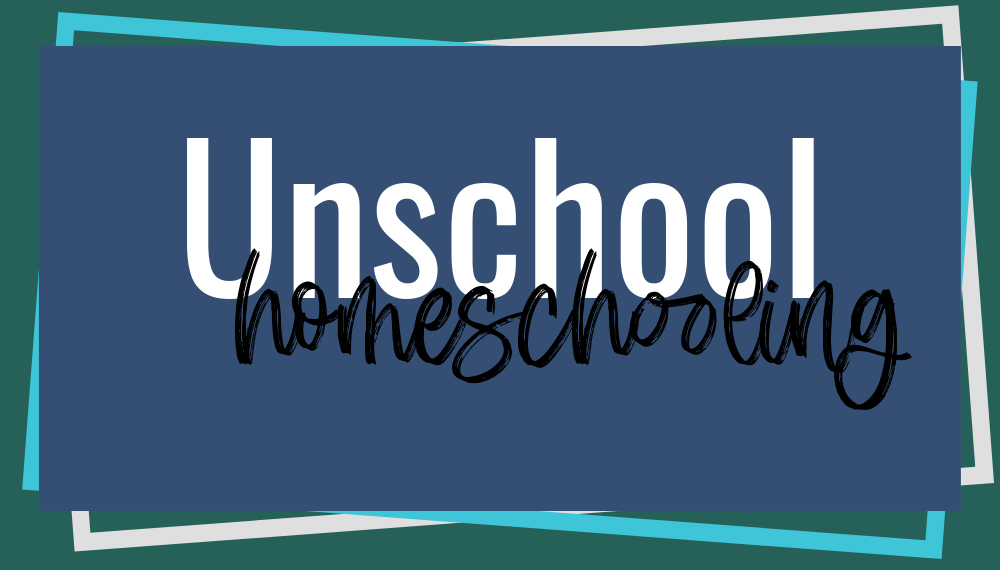
Unschooling
Some people think that unschooling is just not doing school, but that wouldn’t be accurate. All unschoolers would likely have a different definition of what unschooling is to them. In the broadest terms, unschooling is child-led learning. Children naturally are born with a love to learn, and unschooling allows them to follow their passions. Unschoolers usually do not take classes or use textbooks. Books, games, etc. that are related to a child's passion would be offered to engage them in learning.
- Flexibility
- Student-led by their interests
- It may be hard to do in highly regulated states
- Adaptable to your child's interests

Of the different types of homeschooling, which is best?
Unfortunately, there isn’t one that is THE BEST. The one that is the best is the one that works for you and your child. You will need to factor in the amount of time that you have for instruction, what is required by the state, and how your student learns. Reviewing this list will help you to get an idea ahead of time of what curriculum type would work for you and what wouldn’t.
So what do we use?
Of the different styles of homeschooling, I would label ours as eclectic, but it has taken some time to come to that conclusion. When we first started our journey 6+ years ago, I thought I needed to simulate school at home, but as we go and I learn more about who my child (now children) is/are our school has changed. And that is ok! For now, we take some from Charlotte Mason (yay nature studies!) and some from Classical (this history is our favorite!). We also love unit studies and there are advantages to some of the school-at-home options. I will be posting a look at what we are using for this year in the weeks to come.
If you have made it to the end and feel overwhelmed just take a deep breath! You got this! And to help I have created this FREE Start Homeschooling: Planning Guide that will help you on your homeschooling journey. It provides places to brainstorm the different types of homeschooling and much more. Check it out here!
What type of homeschooling do you plan to do or have you done? I’d love to hear from you in the comments!
